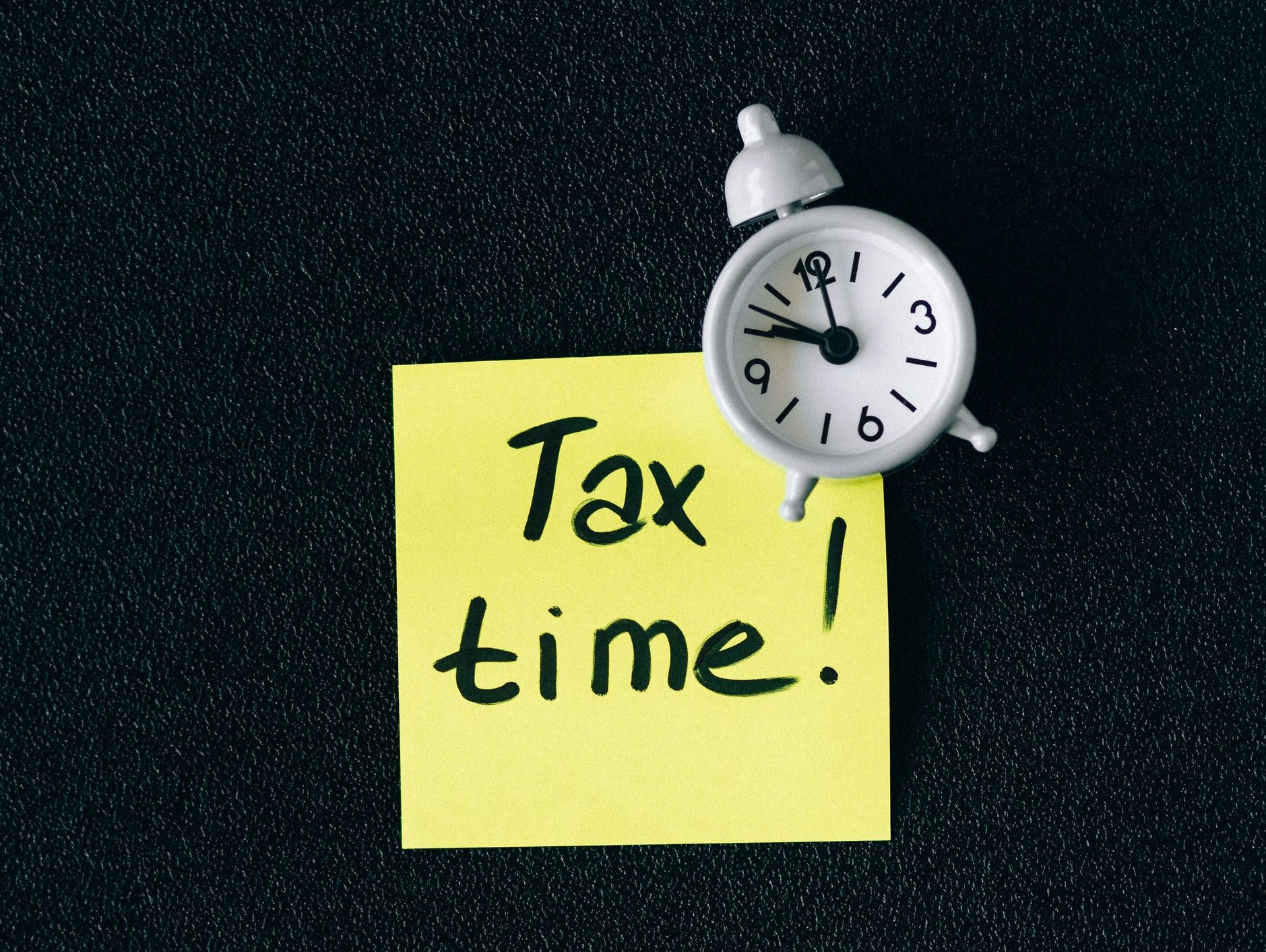Personal income tax news - March 2024
Tax updates - new policies and programs, helpful links, and some uncertainty!
What’s new for 2024 personal taxes?
There has been quite a lot of tax uncertainty this year again! We have compiled a short list of issues that could affect our clients’ 2024 personal income tax filings, for your information. Some of this is good news! Please have a quick read and see what might apply to you, so that you can discuss with your tax preparer.

New benefits, credits and programs
- Charitable donations made up to February 28, 2025 can be applied to your 2024 tax return. However, be sure to keep track of your donations to avoid claiming them twice.
- The First Home Savings Account plan is great for first time buyers. If you qualify, you should immediately open an account. You don’t need to deposit funds, you just need to open the account to start building your annual participation room for the future.
- Home Buyers’ Plan limits have increased from $30,000 to $60,000, and the repayment timelines are extended with to start in the fifth year after the withdrawal.
- Secondary suites: A new loan program is launched to provide low-interest loans up to $80,000 for building secondary suites
- Loan forgiveness for education loans for doctors and nurses practicing in under-served rural and remote communities. Stay tuned for similar programs to support other health care professions.
- Alberta is calling: Moving bonus - A one-time tax credit for individuals in skilled trades who move to Alberta
- Multi-generational home renovation tax credit: tax credits for homeowners who renovate to create a secondary suite for a qualifying individual.
- GST charged in error during the GST tax break can be claimed using GST189 rebate form.
CRA policies and practices
The CRA is transitioning to online-only communications, whether we like it or not. Please get prepared by setting up your MyAccount access. We recognize that the process can be frustrating – here are some new options to register.
The CRA has also engaged in some large data collection activities.
- New legislation requires reporting on reportable sellers from digital platform operators to the CRA. The first required reporting is for 2024, due Jan 31 2025, and will give the CRA a wealth of data to explore for potentially unreported income. If you sold products or services online in 2024, please consider reporting this as self-employment income. Remember you can deduct related expenses.
- The CRA has also started to investigate and request data from cryptocurrency trading platforms. To date, only one trading platform (Coinsquare) has been audited, but expect more to come. If you sold cryptocurrency in 2024, that is almost certainly a taxable transaction. Be sure to understand your transactions and keep a record for potential CRA audits.
Interest and penalties
The CRA has been more active than usual in applying late penalties. On top of penalties, interest rates on late instalments and taxes ranged from 8% to 10% in the last 15 months. Specific penalties to be aware of:
- Foreign income verification statements reporting specified foreign property costing more than $100,000 are due Apr 30, and late filing / missed filing carries a $2,500 penalty.
- TFSA contribution limits: Over-contributions to a Tax-Free Savings Account can result in a surprisingly large penalty if you withdraw and recontribute without waiting for a year to pass.
- Instalment interest is charged where you were required to pay instalments, and paid less than the required amount. The difficulty is that the “required amount” is determined by a combination of your 2023, 2024 and 2025 taxes, some of which is unknown or an estimate.
Useful tools and links
- Determine if your medical expenses are eligible for a tax credit.
- CPP calculator can help you decide when you want to start drawing CPP.
- Received a call from the CRA? Verify if it's really the CRA contacting you.
- Underused Housing Tax has not gone away, but the scope of who is required to report is now much smaller. See this helpful quick reference chart to confirm if you are required to file.
- Automobile deduction limits are increased overall, including an increase to the per-kilometer rate to $0.72/km, and an increase to the deductible cost to $38,000.
- Learn about your taxes – A new educational page for young people or new Canadians
- Life event hub, including what to do when someone dies, which provides more general federal program guidance compared to the CRA’s tax-specific page: Doing taxes for someone who died
- Disability Tax Credit: If you are considering applying, these videos are a great guide. Applications are taking 10-18 weeks to process, and the tax credit can only be applied to your tax returns after the application is approved. Note that you can apply on behalf of parents or others, and that you are able to apply retroactively for a deceased individual.
- Home office expenses information for employees: In general, home office expenses are only deductible to employees if the employer provides a T2200 and you meet certain conditions.
- Travel and vehicle expenses are often examined by the CRA, and a good travel log is an important to have. Options: Paper! MileIQ QuickBooks Mileage Tracker Hurdlr Triplog
- Find out what documents you need to keep in the event of a CRA request for support. CRA released a Tax Tip (You asked, we answered! Here are answers to six more of the top business tax information questions). CRA responded to the question of what is considered a receipt advising that an acceptable receipt must include all of the following:
- the date of the purchase;
- the name and address of the seller;
- the name and address of the buyer;
- the full description of the goods or services purchased; and
- the vendor’s business number if the vendor is a GST/HST registrant.
Real property: Buying, selling, renting and renovating property
There has been a lot of attention and policy activity on housing. Please be sure to provide full info to your preparer so that we can look out for opportunities and challenges.
There are several new loan and credit programs (see above section) to support building of separate and secondary suites. However, these may affect your access to the principal residence exemption in the future.
Rules around short-term rentals are getting increasingly complex, and tax deductions for expenses are only permitted if your rental complies with all local regulations. Please be sure to tell us if your rental property is renting for periods less than 90 days, and check your municipality’s specific rules. For example: City of Edmonton business license
The British Columbia government has a host of new rules around buying, selling and owning property in BC. If this applies to you, please be aware.
The US tax system is also changing with respect to buying and selling real estate. If this applies to you, please be aware and seek professional advice in the jurisdiction of the property.
The US tax system is also changing with respect to buying and selling real estate. If this applies to you, please be aware and seek professional advice in the jurisdiction of the property.
Things we don’t know
There is quite a lot of legislation that is stuck having been passed by parliament, but has not having received Royal Assent. CRA administrative policy is being updated from week to week to give us a little more certainty on filing. Key points are:
- The increase in capital gains inclusion from 50% to 2/3 is delayed until at least January 01, 2026 (for 2024 capital gains, 50% of the gain will be taxed at your personal tax rate).
- Lifetime Capital Gains Exemption is being administered at the higher limit of $1.25M for dispositions on or after June 25, 2024, but there is some risk associated with filing on that basis.
- Trust and bare trust reporting requirements are still unclear and influx. Our general advice to clients is to consider resolving any bare trust / deemed bare trust situations, unless there is a fundamental ongoing need for that trust relationship to exist.
Book a complimentary accounting & tax strategy session

St. Arnaud Pinsent Steman CPA
1653-91 Street SW,
Edmonton, AB, T6X 0W8
(780) 448-0399
Business Hours
- Mon - Fri
- -
- Sat - Sun
- Closed
All Rights Reserved | St Arnaud Pinsent Steman



